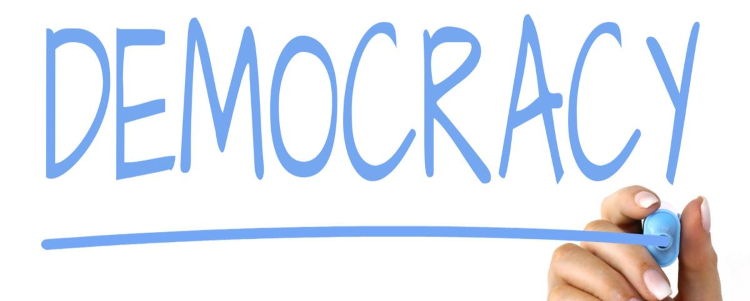How democratic is the UK?
While writing and thinking about Labour Party governance, I asked myself the question how does one measure democraciness? My reading for that article pointed me at two data sets that allow one to answer this question for Nation States. These are the Polity IV index and the Economist Information Unit’s Democracy Index. The key white paper for Polity IV is, CONCEPTUALIZING AND MEASURING DEMOCRACY Evaluating Alternative Indices, by MUNCK & VERKUILEN, University of Illinois at Urbana-Champaign 2002 and the Economist defines its methodology in this paper, The Economist Intelligence Unit’s index of democracy by Laza Kekic dated 2007 which lists their 60 attributes of democracy.
I have decided to examine the Economist’s methodology to see if it can be used to help understand the democraciness of non-Nation State entities. However, I went through the questions and scored the UK according to my own judgements. The rest of this article looks at the Economist’s methodology and my findings about the UK’s democracy. … …
Old Wisdom
I have over the last 24 hours installed the “Advanced Random Post” plugin and created a “Random” page which lists 7 old articles,with a short excerpt. I did this for me because I now have 14 years of content on this blog, and some of it is worth revisiting, either to show how clever I was, or how wrong I was. You can laugh, I can learn! …
Brit. Con. 101
The British Constitution is very simple to understand. Parliament, which means the House of Commons can do what it wants and cannot bind itself or its successors. Unless you can seize control of the Agenda, it seems. …
Democracy in the EU and the Trilemma
While writing up the last article, I also looked at “Labour’s Brexit trilemma: in search of the least bad outcome” on the Open Democracy web site. It refers to Rodrik’s trilemma., which was designed to examine the Bretton Woods currency regulations and the international trade regime it spawned. I have marked up the first of these article with what I think are the interesting bits on diigo which can be viewed here. The OD article adopts the trilemma and sees a Lexit option as maximising (national) democracy and national control of economic policy and poses it against a “remain and reform” position which it argues maximises economic integration.
My biggest problem with the trilemma, which was designed to describe the Bretton Woods global currency regime is that it seems to believe that the UK’s democracy is superior to that of the EU. Within the EU, British Citizens are protected by the Charter of Fundamental Rights and EU’s Court, which as I an others have mentioned is chock full of the children of the opponents of fascism and Stalinism. It is also a republican construct without a House of Lords, without First Past the Post and without a hereditary Head of State. The people elect the European Parliament, the biggest party in the Parliament nominates the President of the Commission, the members of the Council and Commission are nominated by member state governments and the latter are confirmed and can be removed by the Parliament.
The Open Democracy article, also asks some tough questions of the Lexiters, not the least important being what makes you think that a more independent UK can manage Capital and the economy more effectively; it is clear that the Bexiters in the Tory Party don’t believe this. It also points the impossibility of being independent; the WTO places constraints on Trade Policy and if we want to sign a Trade Agreement with the EU, most of their same red lines will exist. …
What is to be done by Labour on Brexit
Back to Brexit, I had reason to write this somewhere else, and decided to share it here.
There is not a consensus within the Labour Party on remain because some who seem to want to leave on any terms will not accept that within the party they are in a tiny minority. The agreed position of the Labour Party is Composite 5/18, which says we reject any deal that does not meet the 6 tests. We seek to bring down the government and win a general election and otherwise all options including a public vote which offers remain are on the table. Despite the attempts of some to smear the supporters of a 2nd mandate as rump new Labour, there were over 100 motions at conference calling for a people’s vote. That is the popular will of the masses, not the result of a tiny caucus’s manipulation.
It would be easily possible to argue as an election manifesto promise that we would seek to negotiate a better deal and then put that to the people i.e. repeat Harold Wilson strategy. This would unite us all except those who want to leave on any terms and hide behind a bogus loyalty to the leadership; most of whom seem unwilling to use a 2nd mandate as a means of escaping the shitstorm we’re in. They are going to look pretty stupid when the Party finally decides that remain is better than the deal on the table.
It is unacceptable that a tiny minority of the party, many of whom have no elected mandate seek to capture it and hold it hostage to a so-called Lexit position and collude with the Tory Government in running the clock down.
There is no principle in arguing that we should remain ambiguous on this issue for reasons of electoral strategy, examined here at statsforlefties; I’d have thought that we have all learnt that we need to take a principled stand by Labour’s actions on the 2014 immigration act where most of the PLP followed a whip to abstain FFS. 😣
ooOOOoo …
Charging for Content? Why?
For proselytising organisations, there is a conflict of motives in getting their stuff out there and read, viewed or heard by those interested in what they have to say and either covering their costs or making money by charging for the content. Religious organisations, self-help organisations and political parties should prefer to make the material available, whereas private sector press organisations like Sky will prefer to maximise income.
Obviously, once the content has been digitised, the cost to duplicate is zero.[1]
Some self-help organisations are confused as to what their priority is, to spread the message or generate income.
[1]The cost to create is not zero, neither is the cost to consume even if the price is free. …
Politics as a Platform. Not!
In an article on Open Democracy, entitled “Digital parties on the rise: a mass politics for the era of platforms”, Paulo Gerbaudo writes of the growth of Politics as a Platform based on ideas from his new book Digital Parties: Political Organisation and Online Democracy The article’s subtitle is, “The old party system appears in serious distress, faced with challengers using digital technology as a means to achieve the utopian goal of a more democratic society”. There’s more below/overleaf … …
Reinforcing Monopoly
Hereby are two stories about how software acts as a barrier to entry to a market and reinforces the monopoly power of its provider.
The first is shown by the fact that industrial content are getting cold feet over the EU copyright directive as the service providers have switched to supporting Article 13 since they already have the so-called “upload filters”. Only the big boys will be able to remain in the game of hosting user authored content. As predicted, the new regulations will inhibit both startups and SMEs.
The second story is closer to home. The UK have decided to mandate age verification functionality for porn sites. Who do you think is going to build that? Alec Muffet and the Open Rights Group have been tracking this and even if you think it’s a good idea, they way it’s being done is disastrous. The BBFC is the regulator and this is a massive piece of scope creep, it looks like they will licence a third party to act as the software provider and again the favourites to win this business is an interested party. Alec’s latest blog post is on Medium and is critical of the regulator’s stance and IT Security expertise and he previously wrote about the competitive dynamics and opportunities created by the new laws. Muffet is also concerned about the profiling use of such a database of porn users. It’s almost back to the days of the Roman Empire where monopolies were licensed. …
CLP Governance 2018
This is long, it’s a rule by rule analysis of the rule changes made to CLP rules by the Democracy Review and #lab18. It deals with GC sovereignty, Executive Committee membership, Branch & Delegate vs. All Member Meeting (AMM), equalities representation and organisation, meeting frequency, job shares and IT & participation. For completeness, I also mention Special Measures & Multi Constituency CLPs. The original text is held in Conference 18 CAC Report 1, which is on member’s net and mirrored here on my wiki. It should be noted that Conference determined these rules came into force on September 27. 2018. I reported on the debate in an article, on this blog, called The Denoument. For more see below/overleaf … …

